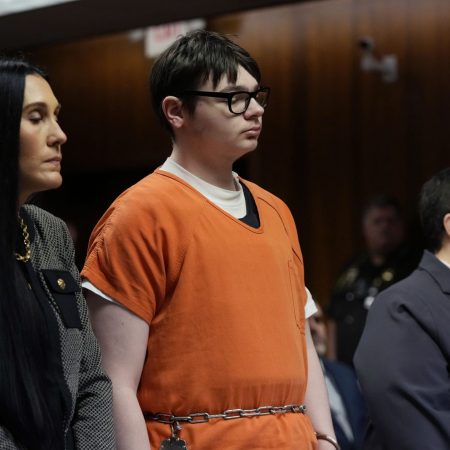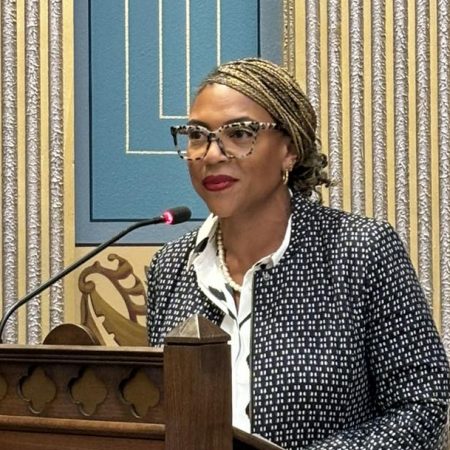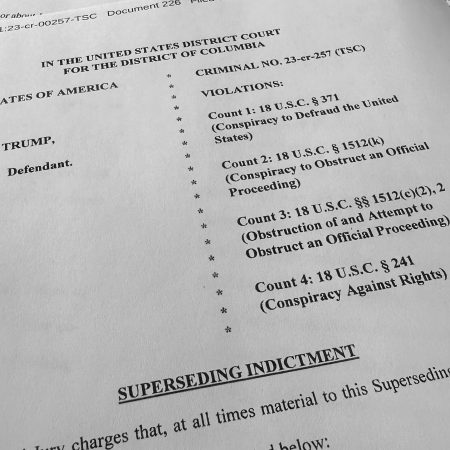WASHINGTON (AP) — Special counsel Jack Smith filed a new indictment Tuesday against Donald Trump over his efforts to undo the 2020 presidential election that keeps the same criminal charges but narrows the allegations against him following a Supreme Court opinion that conferred broad immunity on former presidents.
The new indictment removes a section of the indictment that had accused Trump of trying to use the law enforcement powers of the Justice Department to overturn his election loss, an area of conduct for which the Supreme Court, in a 6-3 opinion last month, said that Trump was absolutely immune from prosecution.
The stripped-down criminal case represents a first effort by prosecutors to comply with a Supreme Court opinion that made all but certain the Republican presidential nominee won’t face trial before the November election in the case alleging he tried to thwart the peaceful transfer of power.
It comes days before prosecutors and defense lawyers are expected to tell the judge overseeing the case how they want to proceed in light of the Supreme Court’s ruling, which said presidents are presumptively immune from prosecution for official White House acts. The high court sent the case back to U.S. District Judge Tanya Chutkan, who now must analyze which allegations in the indictment were unofficial actions — or those taken in Trump’s private capacity — that can proceed to trial.
Prosecutors and Trump’s legal team will be back in court next week for the first hearing in front of Chutkan in months, given that the case had been effectively frozen since last December as Trump’s immunity appeal worked its way through the justice system.
In a statement on his Truth Social platform, Trump called the new indictment “an act of desperation” and an “effort to resurrect a ‘dead’ Witch Hunt.’” He said the new case has “all the problems of the old Indictment, and should be dismissed IMMEDIATELY. ”
The special counsel’s office said the updated indictment, filed in federal court in Washington, was issued by a grand jury that had not previously heard evidence in the case. It said in a statement that the indictment “reflects the Government’s efforts to respect and implement the Supreme Court’s holdings and remand instructions.”
The new indictment does away with references to allegations that could be deemed as official acts for which Trump is entitled to immunity in light of the Supreme Court’s ruling. That includes allegations that Trump tried to enlist the Justice Department in his failed effort to undo his election loss, including by conducting sham investigations and telling states — incorrectly — that significant fraud had been detected.
In its opinion, the Supreme Court held that a president’s interactions with the Justice Department constitute official acts for which he is entitled to immunity.
The original indictment detailed how Jeffrey Clark, a top official in the Trump Justice Department, wanted to send a letter to elected officials in certain states falsely claiming that the department had “identified significant concerns that may have impacted the outcome of the election,” but top department officials refused.
Clark’s support for Trump’s election fraud claims led Trump to openly contemplate naming him as acting attorney general in place of Jeffrey Rosen, who led the department in the final weeks of the Trump administration. Trump ultimately relented in that idea “when he was told it would result in mass resignations at the Justice Department,” according to the original indictment. Rosen remained on as acting attorney general through the end of Trump’s tenure.
The new case no longer references Clark as a co-conspirator. Trump’s alleged co-conspirators were not named in either indictment, but the details make clear their identities. The new indictment stresses that none of the other co-conspirators “were government officials during the conspiracies and all of whom were acting in a private capacity.”
The new indictment also removes references to Trump’s communications with federal government officials — like senior White House attorneys — who told him there was no evidence of fraud that would change the outcome of the 2020 election. It also removes references to certain Trump statements, including a claim he made during a White House press conference two days after the election about a suspicious dump of votes in Detroit.
The new indictment still includes one of the more stunning allegations brought by Smith — that Trump participated in a scheme orchestrated by allies to enlist slates of fraudulent electors in battleground states won by Democrat Joe Biden who would falsely attest that Trump had won in those states.
It also retains allegations that Trump sought to pressure Vice President Mike Pence to reject legitimate electoral votes, and that Trump and his allies exploited the chaos at the Capitol on Jan. 6 in an attempt to further delay the certification of Biden’s victory.
Chief Justice Roberts wrote in his majority opinion that the interactions between Trump and Pence amounted to official conduct for which “Trump is at least presumptively immune from prosecution.”
The question, Roberts wrote, is whether the government can rebut “that presumption of immunity.”
Supreme Court Justice Ketanji Brown Jackson dissented from the ruling. In an excerpt from an interview with CBS News’ “Sunday Morning” that aired Tuesday, she said: “I was concerned about a system that appeared to provide immunity for one individual under one set of circumstances. When we have a criminal justice system that had ordinarily treated everyone the same.”
Story by Eric Tucker and Alanna Durkin Richer, Associated Press. Associated Press writers Mark Sherman, Lindsay Whitehurst and Maya Sweedler contributed to this report.


